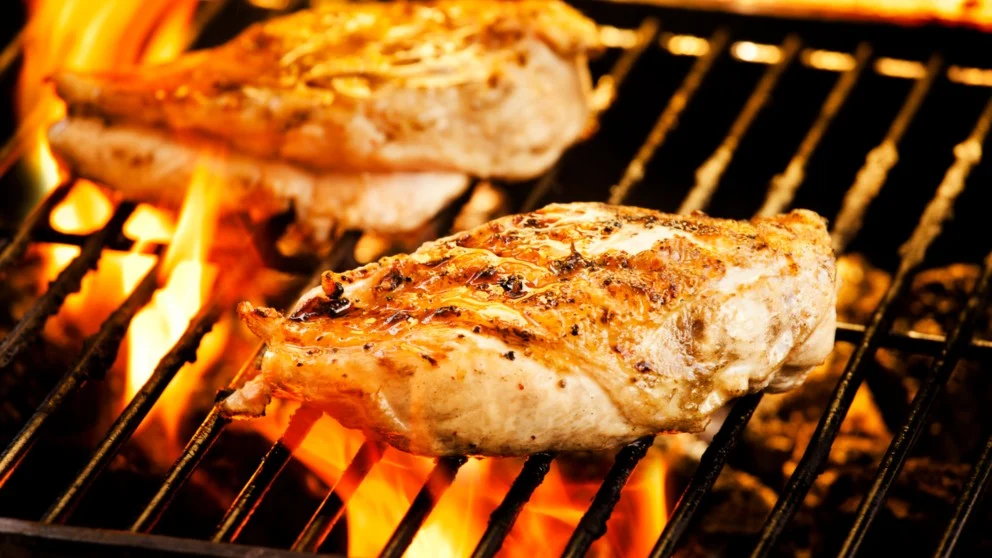
BBQ brisket recipe is the epitome of barbecue recipe perfection, known for its rich, smoky flavor and tender, melt-in-your-mouth texture. Mastering the art of smoking a brisket is a rite of passage for any serious BBQ enthusiast.
Whether you’re a seasoned pitmaster or a backyard griller, this comprehensive guide will walk you through everything you need to know to achieve BBQ brisket greatness.
In this post, we’ll cover the essentials of selecting and preparing your brisket, step-by-step smoking instructions, and tips for achieving the perfect bark and juiciness. By the end, you’ll be ready to impress your friends and family with a BBQ brisket that rivals any BBQ joint.
Understanding BBQ Brisket recipe
What is Brisket?
A brisket is a cut of meat from the lower chest or breast of the cow. It’s known for its tough texture due to the connective tissue, but when cooked low and slow, it transforms into a tender, flavorful masterpiece.
Types of Brisket Cuts: Point vs. Flat
- Point Cut:
- More marbled with fat
- Juicier and more flavorful
- Best for shredding and making burnt ends
- Flat Cut:
- Leaner and more uniform
- Easier to slice
- Often preferred for serving in neat slices
Choosing the Right Brisket
When selecting a brisket, look for:
- A good amount of marbling
- Uniform thickness
- Flexible but not too soft
- Avoid overly thick fat caps
Essential Equipment and Tools
Smoker vs. Grill
While both can be used to cook brisket, a smoker is ideal for achieving that authentic BBQ flavor. Smokers allow for better temperature control and more even smoke.
















Last update: 2024-07-31 // Source: Amazon Affiliates
Thermometers and Temperature Control
A reliable thermometer is crucial for monitoring both the internal temperature of the brisket and the ambient temperature of your smoker. Digital probe thermometers are highly recommended.
Other Tools:
- Sharp Knives: For trimming and slicing
- Cutting Board: A large, sturdy surface
- Foil or Butcher Paper: For wrapping the brisket
- Chimney Starter: For lighting charcoal
Preparing the Brisket
Trimming the Brisket
Trimming is essential to ensure even cooking and to develop a good bark. Remove excess fat from the fat cap, leaving about 1/4 inch. Trim any silver skin and hard fat.
Seasoning and Rubs: Ingredients and Preparation
A good rub is the foundation of a flavorful brisket. It typically includes a balance of salt, pepper, sugar, and spices.
Marinating vs. Dry Rub
- Marinating: Adds moisture and flavor, but can dilute the smoke ring
- Dry Rub: Creates a flavorful crust and allows the smoke flavor to penetrate better
Classic BBQ Brisket Rub Recipe
Ingredients:
- 1/4 cup kosher salt
- 1/4 cup black pepper
- 1/4 cup paprika
- 2 tablespoons garlic powder
- 2 tablespoons onion powder
- 2 tablespoons brown sugar
- 1 tablespoon chili powder
- 1 teaspoon mustard powder
- 1 teaspoon cayenne pepper
Preparation:
- Combine all ingredients in a bowl and mix well.
- Generously apply the rub to all sides of the brisket.
- Let the brisket sit at room temperature for about 30 minutes to an hour before smoking.
Smoking the Brisket
Setting Up the Smoker
- Temperature: Preheat your smoker to 225°F. Consistent low heat is key for breaking down the connective tissues in the brisket.
- Wood Types and Flavors: Different woods impart different flavors. Popular choices for brisket include oak, hickory, mesquite, and fruitwoods like apple or cherry.
Smoking Process:
- Place the Brisket: Position the brisket fat side up on the smoker grate. This allows the fat to render down through the meat, keeping it moist.
- Smoke: Maintain a steady temperature of 225°F. This process can take anywhere from 1 to 1.5 hours per pound of brisket. Plan for an 8-12 hour smoke for a full-packer brisket.
- Monitoring: Use a digital thermometer to keep an eye on the internal temperature. The goal is to reach an internal temperature of around 165°F before wrapping.
Wrapping and Resting
When and How to Wrap (Texas Crutch Method)
- Temperature: When the brisket reaches around 165°F and the bark has developed, it’s time to wrap.
- Wrap: Use either foil or butcher paper. Foil creates a tighter seal and speeds up the cooking process, while butcher paper allows the meat to breathe and maintains the bark better.
- Return to Smoker: Continue cooking until the internal temperature reaches 195-205°F.
Resting the Brisket
- Importance: Resting allows the juices to redistribute throughout the meat, resulting in a moister brisket.
- Methods: Let the brisket rest for at least an hour, preferably two. You can wrap it in a towel and place it in a cooler to keep it warm.
Slicing and Serving
How to Slice Brisket Properly
- Against the Grain: Always slice against the grain to ensure tenderness.
- Slice Thickness: Aim for slices that are about 1/4 inch thick.
Presentation Tips
- Garnish: Sprinkle with a little extra rub or coarse salt.
- Serving Platter: Use a wooden board or a rustic platter for a traditional look.
Accompaniment and Side Dishes
- Classic BBQ Sides: Coleslaw, potato salad, baked beans
- Vegetables: Grilled corn, roasted potatoes, sautéed greens
- Sauces: A simple BBQ sauce or a tangy vinegar-based sauce
Troubleshooting Common Issues
Dry Brisket
- Causes: Overcooking, insufficient marbling, or not enough resting time
- Solutions: Choose a well-marbled brisket, monitor internal temperature closely, and ensure proper resting.
Tough Brisket
- Causes: Undercooking or slicing with the grain
- Solutions: Cook until the internal temperature reaches 195-205°F, and always slice against the grain.
Uneven Cooking
- Causes: Inconsistent smoker temperature or uneven brisket thickness
- Solutions: Maintain a steady smoker temperature, and trim the brisket to an even thickness.
Advanced Tips and Tricks
Experimenting with Different Rubs and Marinades
- Try different spice blends, such as adding cocoa powder for a mole-inspired rub or coffee grounds for a deeper flavor.
Using Injections for Added Moisture and Flavor
- Inject a mixture of beef broth, Worcestershire sauce, and melted butter into the brisket before smoking to keep it moist and flavorful.
Alternative Cooking Methods
- Oven Method: Preheat your oven to 225°F and follow the same smoking and wrapping steps. Use liquid smoke for added flavor.
- Sous-Vide Method: Cook the brisket in a sous-vide water bath at 155°F for 24-36 hours, then finish on the smoker or grill for 2 hours to develop the bark.
Conclusion
Mastering BBQ brisket takes time, patience, and practice, but the results are well worth the effort.
By understanding the basics, experimenting with flavors, and following these step-by-step instructions, you can create a BBQ brisket that’s tender, juicy, and full of smoky goodness.
So fire up your smoker, gather your ingredients, and get ready to enjoy one of the most rewarding BBQ experiences. Happy smoking!
